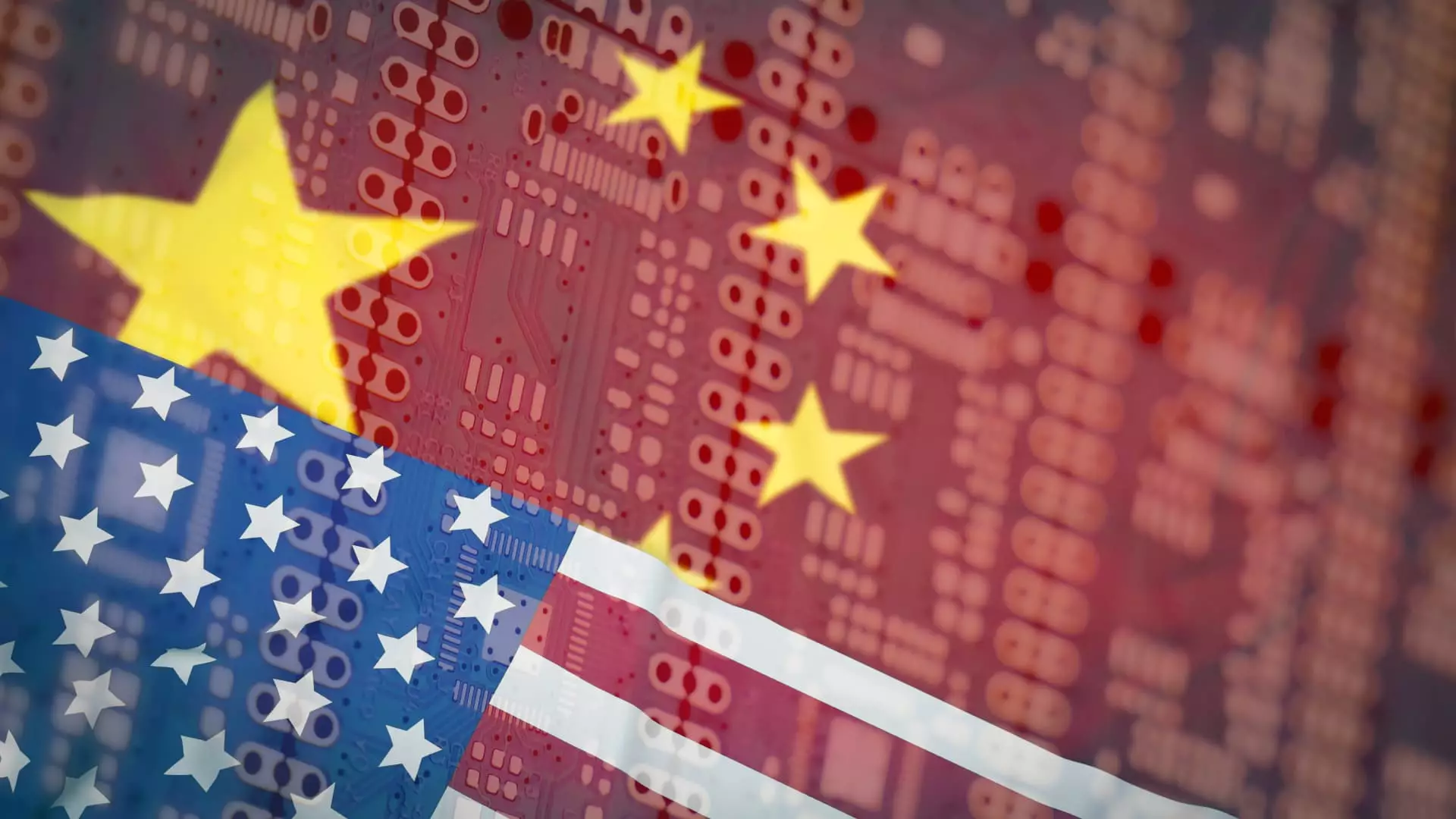In the rapidly evolving landscape of artificial intelligence, Chinese tech giants have been making significant strides in developing their own AI models in the past 18 months. While global attention has predominantly been on big U.S. companies like OpenAI and Google, China’s firms such as Alibaba, Tencent, Baidu, and Huawei have been actively launching their AI models to capitalize on the growing hype surrounding this technology.
The Heated Race for Dominance
China’s aspirations to position itself as a world leader in AI adds another dimension to the ongoing technology battle with the United States. Though China has often been viewed as playing catch-up to the U.S. in terms of AI development, the race is heating up as Chinese companies invest heavily in the research and deployment of groundbreaking generative AI applications like ChatGPT, which have the capacity to generate text, images, and videos based on user prompts.
Baidu, one of China’s largest internet companies, has been at the forefront of developing generative AI applications. The company’s Ernie Bot, a chatbot powered by its AI model, has garnered a user base of 300 million, positioning itself as a strong competitor to OpenAI’s ChatGPT. Baidu’s latest version, Ernie 4.0, is touted to have capabilities on par with OpenAI’s GPT-4, showcasing the remarkable progress made in Chinese AI development.
Alibaba, known for its e-commerce dominance, has also ventured into the AI space with its Tongyi Qianwen foundational models. These models, collectively referred to as Qwen, come in various versions tailored for specific tasks such as content creation, math problem-solving, audio-to-text conversion, and more. With over 90,000 enterprise users already deploying Qwen models, Alibaba has demonstrated the widespread adoption of its AI technology.
Tencent’s Versatile AI Capabilities
Tencent, a tech conglomerate with diverse business interests, introduced its foundational model, Hunyuan, catering to a range of industries from gaming to social media. Leveraging strong Chinese language processing and logical reasoning abilities, Hunyuan supports functions like image creation and text recognition. Tencent’s AI chatbot, Yuanbao, based on the Hunyuan model, showcases the company’s innovation in utilizing AI for enhancing user experiences on platforms like WeChat.
Huawei’s Industry-Specific AI Models
Huawei, a leading telecommunications equipment provider, has adopted a niche strategy with its Pangu AI models targeting specific industries such as government, finance, manufacturing, and meteorology. These models offer advanced capabilities tailored to the unique needs of each sector, including the ability to predict meteorological phenomena like typhoons with unprecedented speed and accuracy.
ByteDance’s Affordable AI Solution
ByteDance, the parent company of popular social media platform TikTok, entered the AI race with its Doubao model, offering competitive features at a more affordable price point compared to its rivals. With the ability to generate voices, code, and other functionalities, ByteDance aims to carve out a space for itself in the fiercely competitive AI market.
The emergence of Chinese AI models from companies like Baidu, Alibaba, Tencent, Huawei, and ByteDance underscores the country’s growing prowess in artificial intelligence. As these tech giants continue to innovate and expand their AI portfolios, they are poised to challenge the dominance of global tech giants and reshape the competitive landscape of the AI industry.


Leave a Reply